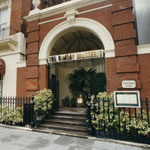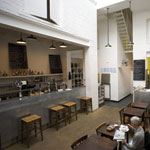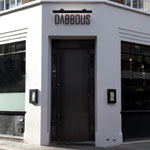The Caterer and Hotelkeeper Interview – Fay Maschler
Fay Maschler, the London Evening Standard's long-standing food critic, last month celebrated 40 years in the job. She tells Joe Warwick what she has observed reviewing restaurants over the past four decades
Do you have plans to retire any time soon? If I had I wouldn't tell you as you're probably just after my job. It's a great job, I still enjoy it and I'll keep doing it as long as the London Evening Standard still wants me.
How did you first land the job?
Where did you review in your very first column? It ran on 22 November 1972, under the headline, "English as she is eaten", the idea back then being to review three places linked together by a theme. I reviewed Bumbles (there were lots of places with a name like that), Tethers and Simpson's in the Strand, and 40 years on it is interesting that two (Bumbles and Simpson's) are still trading. The bills for a meal for two with wine at each came in at £4.40, £6 and £5.78 respectively.
Who else was reviewing restaurants at that time? Beyond the London Evening Standard I don't think there was anyone else reviewing independently. There were people in local papers doing reviews attached to advertising, the sort of thing you still get sometimes - "My companion plumped for the pÁ¢té, it was all washed down by a bottle of delicious house red" - that kind of thing.
I think lots of restaurateurs found it hard when I criticised them because they just expected praise and because I was a woman. In the early days, until people got used to me, I got a lot of flack, even death threats.
I remember the Good Food Guide commenting whenever a restaurant served fresh vegetables. It was such a rare occurrence that they'd deem it worth mentioning that the vegetables weren't either frozen or tinned.
There were loads of really terrible pretentious places that somehow got away with it. Of course there were exceptions, such as the Capital Hotel or somewhere like Odin's, but, looking back now, it was a time characterised by arthritic notions, and lots of pretty amateurish places.
When did things start to change for the better? The real interest in restaurants started in about 1985. I remember Alastair Little being on the cover of Elle magazine and thinking how terrific it was to have a chef on the cover of a magazine like that and that something was changing. Chefs were finally being treated as human beings - and as desirable human beings at that. Someone once said chefs were the hairdressers of the 1980s - and it's true. Hairdressers in the 1970s had a certain fame and notoriety and married pretty girls - and then in the 1980s it was chefs. It was the mid-1980s when food and restaurants finally became something that was written about everywhere and in all their manifestations.
What do you think about restaurant criticism today? It has obviously changed in that it's become something that's thought to be a source of entertainment rather than simply serving a useful function. But I've been lucky writing for a London paper because my audience can actually go to the restaurants I review. If you're writing for a national paper your readers are not necessarily ever going to go to the places that you're writing about, so you have a different brief.
Where do you stand on providing information versus entertaining? I think information is important but I'm saying that within the context of writing for a London paper. If you're writing for The Times, like Giles Coren, or the Sunday Times, like AA Gill, maybe it's more important to put in lots of jokes. But it's a pity because it plays into the idea that an interest in food is somehow comic and that anyone can criticise restaurants, which is not true. You have to have the experience and the knowledge and you have to be able to put things in context or it's not interesting, it's just somebody's account of their meal - and what could be duller than that?
How do you think restaurant criticism should be approached? I'd like to think people should write from the point of view of being a hungry customer trying to have a nice time. Am I disappointed? Am I kept waiting? Am I pleasantly surprised? And so on. At the same time - and I know I'm not unique in this - you more or less know, as soon as you walk in, if somewhere is going to be any good or not. There are so many clues lying around as to whether those involved know what they're doing.
How has the way menus are written changed since you've been in the job? There was the very pretentious period where ingredients were all climbing on beds of this and pillows of that, then at the other extreme we had the terse period where we just had one word, such as "Pig" .The name-checking of ingredients and the farm they've come from is - to me - tedious. If you're aiming to be a good restaurant it should be a given that you're not using crap ingredients. Thankfully it seems that giving you the horoscope of the lamb you're about to eat has now gone out of fashion.
How have you altered your approach over the years? There have been 10 editors at the London Evening Standard since I started and each one wanted to put their imprint on the paper, as they do, and so the brief has altered down the years. I now do only one restaurant each week and that has changed me in a way, in that I've now got only one shot and I don't really want to write negative reviews. I try to think each time: would I send a friend here? And if the answer is no, then I think: what's the point of writing it up?
What do you think of restaurant bloggers? There are one or two I trust but, generally speaking, they don't set anything in any sort of context. They just write and photograph everything they eat and enthuse without much discernment, which isn't terribly useful or interesting.
Do you ever wish you could be anonymous? I can see the advantage that, say, Marina O'Loughlin (I) has but it's too late for me now. I once donned a disguise. I bought this bad wig to go to Harvey's, it was terribly uncomfortable and I was sitting in the dining room thinking about taking it off when Marco Pierre White walked in and said: "Oh hello, Fay, you've had your hair cut. So have I."
Looking back, do you think Marco Pierre White was a great talent? He performed magic in terms of his cooking that I don't think I've come across in England before or since. He had a way of communing with ingredients, as if he could somehow
get inside the soul of something and know exactly what he had to do with it. He was extraordinary.
What are the best things about how the restaurant scene has changed since you started reviewing? I love the care that's now taken in procuring good ingredients, the democratisation of the idea of eating out - that snootiness that was there has mostly been banished - and that the hours are now much more user-friendly than they used to be. There was a time in the 1970s when if you entered a restaurant after 2pm you had no chance of getting lunch. That move to service being more easy-going and more laid-back has been a big change for the better.
What could still improve? The industry is much more professional. Because restaurants have become more glamorous, people are more likely to be content doing a job in a restaurant, although it's still the case that there are not enough British people working in the business, which is a shame. When it comes to service, there has to be warmth and the idea that the person serving you actually likes people, as opposed to just being technically efficient.
What irritates you the most about restaurant scene at the moment? Restaurants that take themselves too seriously to the detriment of their customers - it's on the rise and it's often encouraged by hype generated online. It's counterproductive because the world quickly moves on and if you haven't looked after your customers from the beginning, you'll soon regret it.
What's the worst restaurant you've ever reviewed?
I often get asked that and I always struggle to come up with an honest answer. There have been so many bad ones but I've blocked them out. There are very few that I recall as amusingly ghastly - most were just mediocre places that left no impression.
FAY MASCHLER'S GAME-CHANGING RESTAURANTS
1981 Ménage Á Trois Antony Worrall Thompson had sat down and thought about what his customers wanted and then cut his cloth accordingly. It was a small-plate restaurant long before we started talking about small-plate restaurants and as such was way ahead of its time.
1983 Hilaire The late Alan Crompton-Batt - himself a game-changer in restaurant PR - encouraged Simon Hopkinson to open Hilaire in South Kensington. A move to Bibendum, organised by Terence Conran, meant that Simon's particular fastidious but pleasure-driven approach to cooking inspired a generation of chefs.
1983 Kensington Place It was incredibly different from everything else when it opened. It felt very democratic and had a great mix of customers. I loved Rowley Leigh's food, his impressive intelligence applied to menus. It wasn't too expensive and was one of the first obviously architect-designed dining rooms, with that goldfish-bowl glass frontage.
1993 Aubergine I remember thinking when Gordon Ramsay opened Aubergine that he was a very talented cook, which he was. He lost me when he expanded too far.
2001 Hakkasan When it opened it was like a sexy nightclub and the food was really good. It was really loud but its loudness seemed to be deliberate.
















